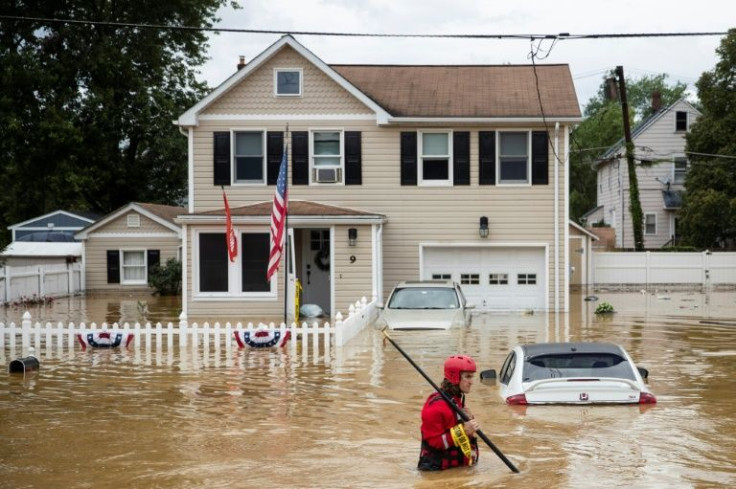Big Banks Are In League With Coal For $1.5T Since 2019
Research by 28 Nongovernmental Organizations (NGOs) from around the world released Tuesday found commercial banks poured $1.5 trillion into the coal industry between January 2019 and November 2021.
Urgewald, a non-profit environmental and human rights organization based in Germany, created the Global Coal Exit List (GCEL) in partnership with the other NGOs. The list covers 1,032 companies that various banks gave money to between 2019 and 2021, all of which contribute to the coal industries in a variety of ways.
The report details how major banks and investors worldwide contribute to the climate crisis by investing in coal companies.
"If the finance industry were willing to stop further investment in these 15 companies, half of the world's oil & gas expansion problem could be solved." - Urgewald founder Heffa Schuecking via @Forbes about the "Global Oil & Gas Exit List".@goldmanprize https://t.co/eE2NOJg6wj
urgewald (@urgewald) February 10, 2022
“It's long been known that the coal industry is the number one driver of our planet's rising temperature. But who is providing the loans, the underwriting services, and the investments that allow these companies to keep on operating?” is the essential question of the report, according to Katrin Ganswindt, head financial researcher at Urgewald.
The answer is big banks. The report found that 12 banks accounted for almost half of the spending, with the top three being Japan-based banks: Mizuho Financial at $33.604 billion, Mitsubishi UFJ Financial at $23.151 billion, and SMBC Group at $20.431 billion. All three are members of the Net Zero Banking Alliance (NZBA).
“Banks like to argue that they want to help their coal clients transition, but the reality is that almost none of these companies are transitioning. And they have little incentive to, so as long as bankers continue writing them blank checks,” Ganswindt added.
The data also disclosed that the U.K.-based bank Barclays gave $16.136 billion to coal industries. Citigroup, based in the U.S., followed its contribution with $14.965 billion, then there's Bank of China, which gave $13.453 billion. U.S.-based banks JPMorgan Chase ($12.256 billion, and the 7th largest global lender to the coal industry), Bank of America ($9.585 billion), and Wells Fargo ($8.463 billion) were the next highest contributors to coal industries.
“JPMorgan Chase’s list of coal clients in 2021 reads like a 'who's who' of the most carbon-heavy companies on the planet...despite a new coal policy in 2020,” said Jason Opeña Disterhoft from Rainforest Action Network.
BNP Paribas, based in France, gave $7.805 billion, followed by US Bancorp at $7.557 billion, and last but not least Sumitomo Mitsui Trust, a Japan-based group, gave $6.649 billion.
These twelve banks, deemed the “Dirty Dozen Top Lenders” by the report, contributed $174.056 billion in total and account for 48% of total lending to coal industry-involved companies. All but two in the top 12, Bank of China and US Bancorp, are members of the NZBA.
Banks from six countries provided 86% of the financing, both underwriting and lending, for the coal industry: China, the U.S., Japan, India, the U.K., and Canada. The U.S., Canada, and the U.K. made promises to reduce carbon emissions and investments in coal at Glasgow during COP26.
“If banks from these six countries continue business as usual, we won’t be able to move out of coal in time to keep the 1.5°C limit within reach,” warned Ganswindt.
Research also showed that 24 investors - including U.S.-based BlackRock, Vanguard, Capital Group, State Street, Fidelity Investments, and JPMorgan Chase, among others - account for 46% of investors' investments in coal. Many of these investors included in the report are a part of the Net Zero Asset Manager Initiative.
“No one should be fooled by BlackRock’s and Vanguard’s membership in the Net Zero Asset Managers Initiative. These two institutions have more responsibility for accelerating climate change than any other institutional investor worldwide,” said Yann Louvel, a policy analyst at Reclaim Finance.
The report described the U.S. as the overall “elephant in the room” as U.S.-based investors account for 56% of institutional investors in the coal industry with shares and bonds totaling $688 billion.
“Despite the flood of net-zero alliances and climate ambition statements by financial institutions during COP26, the vast majority of investors are still failing to do the obvious: End their support for coal developers and adopt coal exit policies that are in line with the 1.5°C target,” Louvel added.

© Copyright IBTimes 2024. All rights reserved.






















